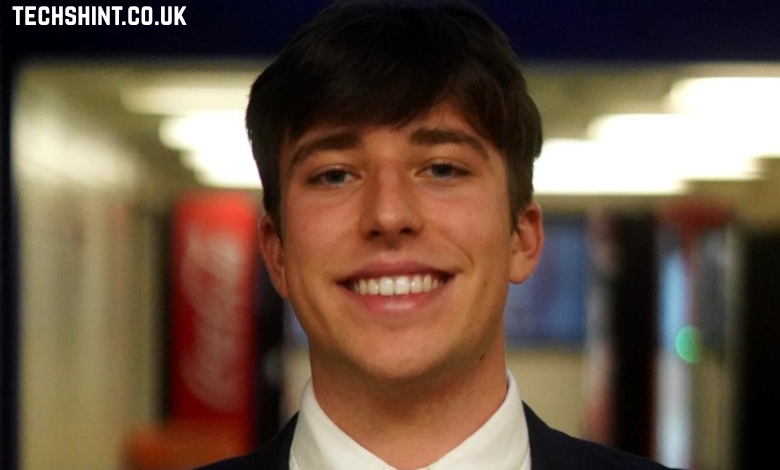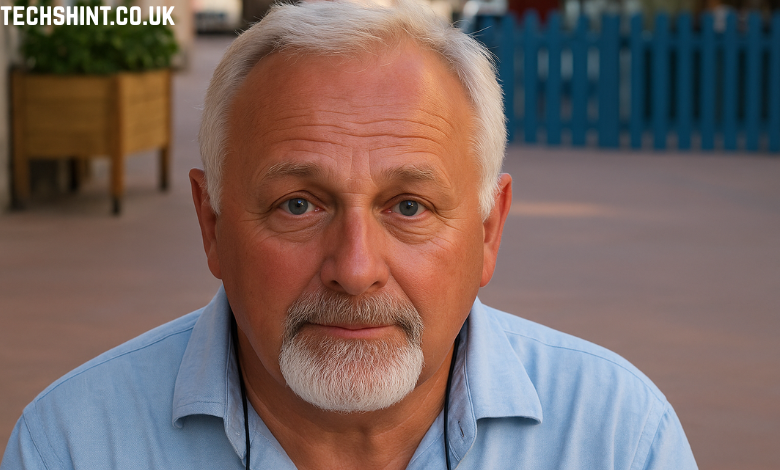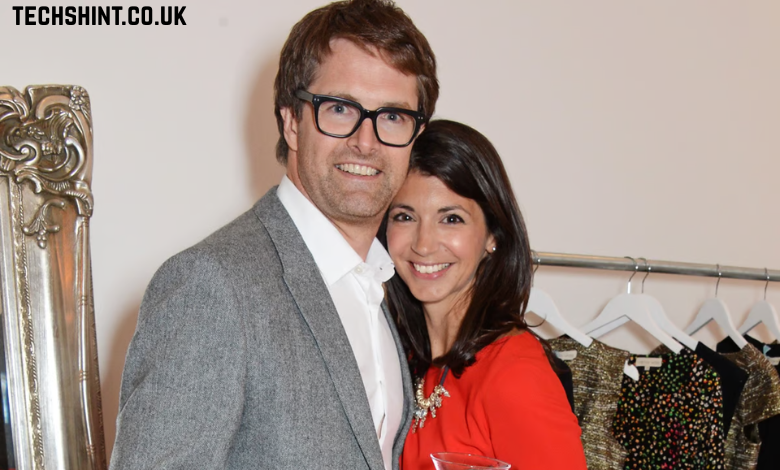In the healthcare field, the journey toward a professional career often begins long before graduation day. It starts with a mix of academic discipline, real-world experience, and a willingness to engage in demanding and essential work. One example of such a journey is the early career of Brooks Prejean, a student at Louisiana State University who is already contributing to the medical field through his work with the Southern Eye Bank. Based in the Lafayette, Louisiana Metropolitan Area, Prejean’s educational path and work experience reflect a commitment to science, health, and service.
This article offers a comprehensive look at who Brooks Prejean is, detailing his academic background, professional experience, and the larger context in which he operates.
Educational Foundation
High School: Episcopal School of Acadiana (2017–2021)
Brooks Prejean began his educational journey at the Episcopal School of Acadiana (ESA), a well-regarded college preparatory school known for its academic rigor and commitment to student development. During his four years at ESA, Prejean would have engaged in a diverse curriculum, possibly including early exposure to biology, chemistry, and other sciences that likely shaped his academic interests.
The school emphasizes not only scholastic achievement but also values such as leadership, community involvement, and integrity. Graduating from ESA with a high school diploma in 2021, Prejean left the institution equipped with a solid foundation for university-level education.
Undergraduate Studies: Louisiana State University (2021–2025)
After high school, Brooks Prejean enrolled at Louisiana State University (LSU), pursuing a Bachelor of Science degree in Biology/Biological Sciences. LSU is one of the largest universities in the state and is recognized for its programs in the sciences and health-related fields.
His chosen field of study, general biological sciences, covers a broad spectrum of topics including genetics, microbiology, physiology, and ecology. This major is a common pathway for students who plan to enter medical school or pursue other careers in health and life sciences.
At LSU, Prejean likely engages in laboratory work, collaborative research, and coursework that requires both analytical and practical skill sets. The program is designed to offer a comprehensive understanding of biological systems, preparing students for careers in medicine, biomedical research, biotechnology, or public health.
Professional Experience
Role at Southern Eye Bank: Organ Recovery Technician (Jan 2023–Present)
While many college students are just beginning to think about internships or shadowing professionals, Brooks Prejean has taken a more direct and hands-on route into the medical field. Since January 2023, he has served as an Organ Recovery Technician at Southern Eye Bank in Metairie, Louisiana.
Southern Eye Bank is a non-profit organization dedicated to the recovery, processing, and distribution of eye tissue for transplantation and research. Their mission is closely tied to restoring vision and advancing scientific study.
What Does an Organ Recovery Technician Do?
In this role, Prejean is responsible for the recovery of eye tissue from donors. The job requires a high degree of precision, professionalism, and adherence to medical protocols. Responsibilities often include:
- Performing tissue recovery procedures in sterile environments
- Coordinating with hospitals and other medical staff
- Documenting each case thoroughly for compliance and traceability
- Transporting tissue according to strict guidelines
- Supporting transplant surgeons or researchers by ensuring the tissue meets quality standards
This position is often emotionally demanding, as it involves working in settings related to death and grieving families. At the same time, it is critically important to people who are waiting for transplants. By engaging in this line of work while still an undergraduate, Prejean is gaining experience that is both technically advanced and ethically significant.
Skill Development
The Organ Recovery Technician role is not only a medical task but also a logistical and interpersonal one. Prejean is learning skills such as:
- Sterile technique and surgical instrument handling
- Communication with donor families and hospital staff
- Time-sensitive decision-making under pressure
- Ethical considerations in organ donation and recovery
- Regulatory compliance and documentation procedures
Such experience is rarely found in undergraduate students and will likely set him apart when applying to graduate programs or medical school.
The Broader Context: Eye Banking and Public Health
About Southern Eye Bank
Founded in 1947, Southern Eye Bank has provided thousands of corneas and other ocular tissues for transplantation. The work Prejean is involved in directly impacts people suffering from conditions like keratoconus, corneal scarring, and other diseases that lead to vision loss.
The eye banking field also plays a role in public health. It is part of the larger network of organ and tissue donation in the U.S., which is regulated by organizations such as the Eye Bank Association of America (EBAA) and the U.S. Food and Drug Administration (FDA).
By contributing to this system, Prejean is not only developing technical skills but is also participating in a healthcare service that extends beyond hospital walls.
Navigating the Future: Potential Career Paths
Graduate and Professional School
With his undergraduate degree in biological sciences and real-world experience in organ and tissue recovery, Prejean is well-positioned for future academic pursuits. Potential next steps could include:
- Medical School – With aspirations in medicine, Prejean could leverage his current work to gain admission into an M.D. or D.O. program.
- Physician Assistant School – A more targeted clinical path that also values patient contact and technical skill.
- Biomedical Research – Prejean’s laboratory and fieldwork could translate into a role in medical research, particularly related to organ preservation, transplant immunology, or ocular science.
- Public Health – His insights into donation logistics and ethics might be useful in broader public health initiatives or nonprofit work.
Immediate Contributions
Regardless of future educational plans, Prejean’s current role allows him to contribute meaningfully to health outcomes. Eye tissue transplants improve the quality of life for recipients, and technicians like him make these procedures possible.
The Significance of Early Clinical Experience
Many healthcare professionals look back at their early work experiences as formative. For Prejean, the time spent at Southern Eye Bank is doing more than building a resume—it is instilling values such as compassion, discipline, and accountability.
In addition, this kind of work tests a student’s commitment to healthcare. The physical and emotional demands can be intense, especially for young individuals. That Prejean has taken on this challenge while balancing academic commitments at LSU is a signal of his dedication.
Community and Regional Ties
Prejean’s educational and professional journey is also grounded in his connection to Louisiana. From his high school days at the Episcopal School of Acadiana to his university studies at LSU, his work and learning have unfolded within the state.
This regional identity may shape his future aspirations. Louisiana, like many parts of the United States, has a need for committed healthcare professionals—especially in fields like organ and tissue donation, public health outreach, and rural medicine.
Should Prejean choose to continue his work within Louisiana, he could become part of a network of professionals addressing statewide challenges in healthcare access, health literacy, and medical ethics.
Lessons for Other Students
Brooks Prejean’s profile offers valuable insights for other undergraduate students considering careers in health sciences. His path underscores several key points:
- Start Early: Gaining clinical experience as an undergraduate gives students a competitive edge.
- Be Practical: Roles like organ recovery may not be glamorous but are vital and educational.
- Stay Local, Think Big: Regional institutions and organizations can offer powerful opportunities that align with global health priorities.
- Balance Matters: Combining rigorous coursework with demanding work requires discipline and time management.
Conclusion
Brooks Prejean is a biology student at Louisiana State University who has already stepped into a meaningful role within the medical field through his work at Southern Eye Bank. As an Organ Recovery Technician, he contributes directly to the life-changing process of tissue donation and transplantation. His academic and professional journey reflects both a clear direction and a willingness to engage with real-world medical practice early in his career.
In an age where healthcare systems face mounting pressure and a growing need for skilled professionals, individuals like Prejean provide a glimpse into the next generation of healthcare providers—dedicated, informed, and already active. As he continues his studies and gains further experience, his trajectory suggests a future rooted in service, science, and the steady pursuit of medical advancement.
FAQs
- Who is Brooks Prejean?
Brooks Prejean is a biology student at LSU and works as an Organ Recovery Technician at Southern Eye Bank. - Where does Brooks Prejean study?
He is pursuing a Bachelor of Science in Biology at Louisiana State University, expected to graduate in 2025. - What does Brooks Prejean do at Southern Eye Bank?
He performs tissue recovery procedures as part of organ and eye donation services. - What is Brooks Prejean’s educational background?
He graduated from Episcopal School of Acadiana in 2021 and is currently studying biology at LSU. - Is Brooks Prejean planning a career in medicine?
While not publicly confirmed, his academic and clinical experience suggests a strong interest in a healthcare or biomedical career path.


